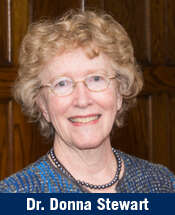Main Second Level Navigation
- News
- Events
- PsychNews
- Mindfest
- Donald Wasylenki Education Day
- The Future of Psychotherapy Conference
- Department of Psychiatry Research Day
- Annual University of Toronto Psychopharmacology Conference
- Professorial Lectures
- Psych Refresh
- TEAM Scholarship Day
- Impact: Psychiatry Articles that Change Treatment
Breadcrumbs
- Home
- News & Events
- News
- Discussing Medical Assistance in Dying and Mental Illness in Canada
Discussing Medical Assistance in Dying and Mental Illness in Canada

Medical Assistance in Dying (MAiD) and the law in Canada
Medical Assistance in Dying (MAiD) is a procedure in which a requesting patient who meets specific criteria is prescribed or administered medications to end their life intentionally and predictably with the assistance of a physician or nurse practitioner. In Canada, following the Supreme Court Carter decision, MAiD was legalized in June 2016 with the passage of the Medical Assistance in Dying (MAiD) Act (known as Bill C-14). The Act established who would be eligible to receive MAiD and required safeguards to ensure that MAiD would be delivered within an agreed upon framework. Initially, only those with a “serious and incurable illness, disease or disability”, in an “advanced state of irreversible decline”, who were “experiencing grievous physical or psychological suffering” and “whose natural death was reasonably foreseeable” could be eligible to receive MAiD. Bill C-14 required two independent assessments by physicians and/or nurse practitioners to determine eligibility. A requesting individual can remove their request for MAiD at any time. Physicians and nurse practitioners who are conscientious objectors do not need to participate in MAiD but must provide an effective referral such as by connecting the patient to a provincial MAiD Care Coordination Service.
In March 2021, the passing of Bill C-7 amended the law to more closely reflect the original Carter decision and removed the requirement that a person’s natural death must be reasonably foreseeable to be eligible for MAiD; changes included that, after March 2023, individuals could make requests for MAID when mental illness is the sole underlying condition. The government has begun a review by the Independent Expert Panel on MAiD and Mental Illness who will make recommendations by March 2022 on the protocols and safeguards that should be put in place to guide decision-making on providing MAiD to requesting individuals where mental illness is the sole underlying condition.
A number of faculty members in the Department of Psychiatry at the University of Toronto have been involved in discussions regarding MAiD for mental illness, both in an official capacity (advising the government as experts) and by voicing their views through public forums, academic publications, or the media. MAiD is a complex topic, and our faculty members have different positions on the issue. Hosting different perspectives and providing experts with a space to discuss the issues that shape our society is part of the University’s mandate. We asked four faculty members to discuss their views on MAiD for those with mental illness, and what they think Canadians need to know.
The views expressed in this article are individual faculty members expressing their opinions. They do not represent the views of any organizations, committees, or panels to which these faculty members belong.
 Dr. Justine Dembo
Dr. Justine Dembo
Justine Dembo is an Assistant Professor in the Department of Psychiatry and a Staff Psychiatrist at Sunnybrook Health Sciences Centre. She is a member of the 12person Independent Expert Panel on MAID and Mental Illness advising the Federal Government of Canada to recommend protocols, guidance, and safeguards which will apply to requests for MAiD made by persons who have a mental illness.
Dr. Justine Dembo on MAiD
I am grateful that Bill C-7 does not discriminate against individuals suffering intolerably from mental illness, in that it gives these individuals the same right to a thorough assessment for MAiD as anyone else with any other severe, unbearable, and treatment-refractory illness. If those with mental illness were to be excluded, it would further perpetuate stigma, implying that the suffering from mental illness is not as severe or that mental illnesses are not as serious, while also implying that individuals with sole mental illness lack decision-making capacity. It is also not always possible to draw a clear line between “physical” and “mental” illnesses. If persons with comorbid mental and physical illness can request MAID, it would not be justifiable to exclude individuals with sole mental illness.
Medicine is far from a point where we can relieve each person’s suffering to a degree that it is bearable to that individual. My position on MAiD reflects my understanding that psychiatrists must think deeply about the needs of each and every patient, applying up to date knowledge within the field in a thorough, compassionate, ethical, and creative way, suited to the needs of each individual patient.
I want to emphasize that the assessment process for MAiD is extremely rigorous; MAiD is absolutely not “death on demand.” Even among physicians this is a common misconception, and it must be corrected. Many requests are denied after careful consideration. MAiD assessors are conscientious individuals who care about life and quality of life; they do not proceed unless they are satisfied, after a thorough evaluation, that a patient clearly meets all criteria.
It is important to differentiate MAiD from suicide. In cases of physical illness with or without comorbid mental illness, a lengthy and comprehensive assessment is often required to determine whether someone requesting MAiD is suicidal in the conventional sense of the word or not. MAiD assessors routinely make this differentiation and can do so in the case of sole mental illness as well.
There are many conflicting views and sometimes a high degree of polarization on the issue of MAiD for mental illness. As with any other aspect of medicine, it is crucial that differing perspectives exist, because this way, we can challenge each other and continue to learn from each other over time. It is also important that discussions about MAiD and mental illness be collegial and respectful.
 Dr. K. Sonu Gaind
Dr. K. Sonu Gaind
Dr. K. Sonu Gaind is a Professor in the Department of Psychiatry and Co-director, Division of Adult Psychiatry and Health Systems. He is the Psychiatrist-in-Chief at Humber River Hospital. He sat on the Council of Canadian Academies Expert Panel on Medical Assistance in Dying (MAiD) where a Mental Disorder is the Sole Underlying Medical Condition (MD-SUMC), convened the Expert Advisory Group (EAG) on MAiD and Mental Illness and presented a Brief on Medical Assistance in Dying (MAiD) to the Canadian Senate.
Dr. K. Sonu Gaind on MAiD
While I support MAiD in general, and work as physician lead for our hospital MAiD team, I have come to realize it would be premature and irresponsible to allow MAiD for sole mental illness conditions at this time. People can understandably have a range of opinions, however it is a fact that the primary safeguard in Canada is that MAiD is meant for irremediable conditions. We still cannot in any reasonable or evidence-based way predict irremediability of mental illnesses. When people with sole mental illness get MAiD, we know some of them would have gotten better, even when we wrongly predicted they wouldn’t (we just won’t know which of these patients would have improved instead of getting MAiD).
Suffering is cumulative, and life suffering unfortunately fuels much of the suffering of those with mental illness, even more so for marginalized populations. In my opinion, wide MAiD expansion represents a colonial legacy of policies that favour the autonomy of the privileged at the expense of the marginalized. Combined with the fact we can’t predict irremediability in mental illness, this means that already marginalized people who could have gotten better will instead get MAiD during periods of transient despair worsened by life distress. Canadians should know that, instead of only being told MAiD is about autonomy to die with dignity.
It is important to have different perspectives and open discussion about MAiD. Open and balanced presentation of views and information should be encouraged, without fear of bullying behaviours, and colleagues and the public should be respected to make their own informed decisions. However, experts should not use medical platforms to present opinion as evidence. Just because some individuals believe they can predict irremediability of mental illness this does not mean they can. We would never accept that standard for adoption of any medication or treatment. Our debate about MAiD should acknowledge the real question being debated: Should those with mental illness be able to get MAiD when they have suffered enough, even when they could get better? We should not pretend it is a debate about whether people would be getting MAiD for an irremediable condition, since evidence shows that cannot be predicted at this time and it is dangerous to provide death for one reason while pretending it is for something else.
Dr. K. Sonu Gaind’s full Senate Brief on Medical Assistance in Dying (MAiD) can be read online.
 Dr. Mark Sinyor
Dr. Mark Sinyor
Dr. Mark Sinyor is an Associate Professor in the Department of Psychiatry, a Psychiatrist at Sunnybrook Health Sciences Centre, and an Associate Scientist at the Sunnybrook Research Institute. He is the founder of PROGRESS (the Program of Research and Education to Stop Suicide) at Sunnybrook. He provided testimony as an expert witness in the Truchon v Attorney General of Canada court case, in which the Quebec Superior Court found Canada’s existing MAiD law to be overly restrictive.
Dr. Mark Sinyor on MAiD
I approach this issue as someone committed to the preservation of psychiatry as a science. The public debate about MAiD in Canada has involved a number of major philosophical disagreements about potential benefits and harms. In medicine, when evaluating any novel, proposed intervention, we have a mechanism by which to help resolve such questions. That is scientific inquiry and evidence.
Yet MAiD for mental illness has been the subject of virtually no research. Missing evidence includes: a consensus definition for the proposed construct of “enduring and intolerable suffering”; its prevalence prior to and after treatment; the reliability of physician predictions about “irremediability”; and potential implications on help-seeking and suicide prevention. Instead, the court in Quebec and the Canadian government relied on the opinions and conjecture of advocates, many with little scientific background, who relied on methodologically weak and/or largely missing evidence.
Consequently, we have no way to calculate or even estimate the “number needed to harm” for this intervention (where harm means ending someone’s life inappropriately). How many Canadians who will access this treatment may have suffering that could be remediated with adequate treatment? Without research, no one can say. Proceeding without testing that question is unconscionable and fundamentally anti-scientific. The only rational response for psychiatrists is to refuse to participate until and unless evidence clearly shows that this practice is safe and that the potential benefits outweigh the harms.
 Dr. Donna Stewart
Dr. Donna Stewart
Dr. Donna Stewart is a University Professor in the Department of Psychiatry and the Inaugural Chair of Women’s Health at the University of Toronto. She is a Senior Scientist at the Toronto General Hospital Research Institute and a Member of the Order of Canada. She is a member of the 12-person Independent Expert Panel on MAID and Mental Illness advising the Federal Government of Canada to recommend protocols, guidance, and safeguards which should apply to requests for MAID made by persons who have a mental illness.
Dr. Donna Stewart on MAiD
In keeping with the Canadian Charter of Rights and Freedoms which prohibits discrimination based on physical and mental illness I think that individuals with mental illness should be eligible for assessment for MAiD, but strict safeguards must be developed to protect vulnerable individuals so that very few will qualify for MAiD. Those who do not qualify will likely benefit by being referred for diverse forms of psychiatric, psychosocial, and environmental care that they previously have not received.
My position on MAiD reflects my understanding of my duties as an expert psychiatrist; to practice my profession compassionately using the best current knowledge and practice to provide the highest quality care, guided by the 4 ethical principles of autonomy, beneficence, nonmaleficence and justice. As an academic psychiatrist I also teach residents and colleagues about MAiD, conduct and publish research in peer-reviewed professional journals and participate in professional, public and government discussions on this topic.
One of my concerns is that too many psychiatrists are using all their energy to try and re-legislate Bill C-7, rather than contribute to the development of guidance, protocols and safeguards during the two-year period before individuals who meet the criteria will be legally empowered to request MAiD solely on the basis of mental illness. That is one reason that I agreed to contribute to the 12-person Canadian Independent Expert Committee on MAiD and Mental Illness to develop safeguards, and to the Canadian Psychiatric Association Working Group on MAiD and Mental Illness to develop a Discussion Paper.
Canadians are fortunate to live in a country where a compassionate assisted death is available to requesting individuals who are suffering from a serious incurable condition, provided they meet strict eligibility criteria outlined in the law, professional guidance, and careful assessments.
Universities have a long and proud history of participating in public discourse on controversial social topics, which has contributed to scholarship and sometimes to public policy. The Department of Psychiatry faculty and leadership should approach the sensitive controversial topic of MAiD and mental illness with respect, civility, accuracy of information and humility, recognizing that there are many differing opinions along a spectrum from opposition to support.
Read Dr. Donna Stewart’s Senate of Canada Brief and Testimony in regard to Bill C-7.
Conclusion
Whether MAiD should be provided when mental illness is the sole underlying condition is a complex issue. By presenting and defending different perspectives, our faculty members help all Canadians to gain a better understanding of the clinical and moral factors involved in this issue. Also, these faculty members should influence legislators who have the ultimate responsibility to make Canadian law, which all psychiatrists and other health professionals will have to follow.
“While we should agree on objective scientific evidence, we may still come to different interpretation of the evidence based on our different values,” says Dr. Benoit Mulsant, Labatt Family Chair of the Department of Psychiatry. “The Department of Psychiatry is an academic place where we can discuss complex issues in a civil and productive manner despite our honest disagreements.”
Regardless of individual opinions, participation in these discussions is an essential contribution our faculty members make to Canadian society. Only through open dialogue, can we make the best possible decisions when faced with difficult decisions.
